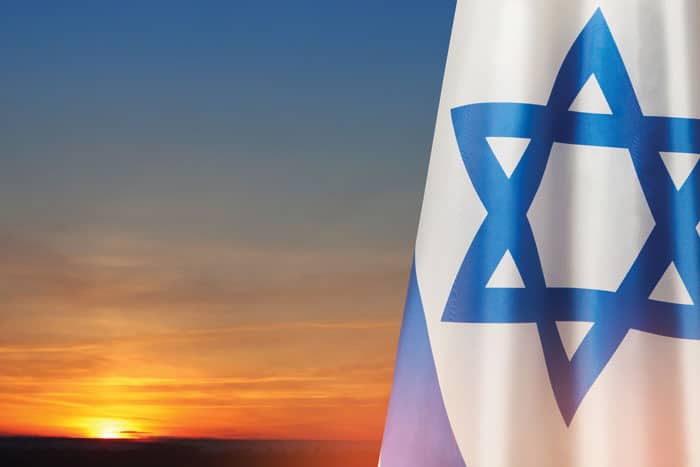 vadimrysev/Getty Images
vadimrysev/Getty Images My granddaughter Shachar left for New York on Sukkot eve for a three-week vacation. She arrived there a proud Israeli but without much connection to being Jewish. A week later Hamas attacked Israel. What Shachar experienced in New York left her with one undeniable conclusion: Being Jewish and being Israeli are intertwined. One identity cannot exist without the other.
You might assume this was a result of the antisemitism she witnessed in the streets of New York and on the campuses near her, or the pro-Hamas demonstrations and people tearing down the posters of the kidnapped citizens and soldiers that she and her friend Tamar had put up. You wouldn’t be completely wrong, but there was an aspect to the events around her she wasn’t expecting. It had to do with the sympathy American Jews showed her.
Although Shachar, 22 and her military service concluded, appreciated the tremendous support, both emotional and financial, from American Jewry, something was bothering her. The sympathy for the pain and fear that she and the other Israelis she met in New York were experiencing was sincere. However, Shachar felt that the sympathy was directed at Shachar, the Israeli, not Shachar, the Jew (and Israeli).
“As Jews, the attack on Israel should be their pain and fear, too. I know they were hurting for us, but I wanted the American Jews I met in New York to feel equally sad and worried for themselves.”
She wanted to believe they were feeling the same pain and fear that she was feeling. “As Jews, the attack on Israel should be their pain and fear, too. I know they were hurting for us, but I wanted the American Jews I met in New York to feel equally sad and worried for themselves. If anything happens to American Jews, they have Israel as a backup, but if anything happens to Israel, there will be no backup for Jews anywhere. Jews need Israel and Israel needs to be Jewish because without it, why are we here?”
Before the army, Shachar had been active in a leadership youth movement where they often debated the question: Do I feel more Israeli or more Jewish? Shachar always said she felt more Israeli because for her, choosing Jewish meant being observant: Observing Shabbat as an Orthodox Jew, which does not appeal to her, as her family observes Shabbat as Masoret tradition.
Today she would answer differently. Being Jewish means being part of the Jewish people but not necessarily your religious observances. Today for Shachar, there is no debate. There is no separation for her between being Israeli and being Jewish.
Shachar and Tamar spent most of their time in New York with other Israelis, who shared the agony of personal losses and missing family.
Together they cried and texted with friends in Israel. They wanted to get back. But only those who had urgent callup notices – 200,000 from around the world – made it onto El Al “rescue” flights.
Together they stayed in Tamar’s uncle’s apartment, terrified of going out on the Day of Rage, trying to comprehend that such an event could happen in New York City. The effect of the “Rage” permeated the city. They were worried for their safety wherever they went.
“What kind of thought is that?” she asks. “We weren’t safe as Jews in New York.”
Together they designed, printed and posted pictures of the kidnapped and missing, using their own money and whatever donations they received to support the project.
Together they shared stories of their friends and family murdered, wounded, kidnapped or missing.
“What’s your number?” Shachar wrote in her journal, reflecting on a new question her generation was asking each other. For her personally on the first day of the war, the number was four dead, two in critical condition, two missing – all soldiers, and one missing from the music festival. Now it’s ten dead.
Her friend Etai, she emphasized, was wounded protecting not only Israel, but all Jews.
“I want Jews everywhere to know that our friends, our soldiers are fighting for them, too,” Shachar said.
Galia Miller Sprung moved to Israel from Southern California in 1970 to become a pioneer farmer and today she is a writer and editor.






















 More news and opinions than at a Shabbat dinner, right in your inbox.
More news and opinions than at a Shabbat dinner, right in your inbox.